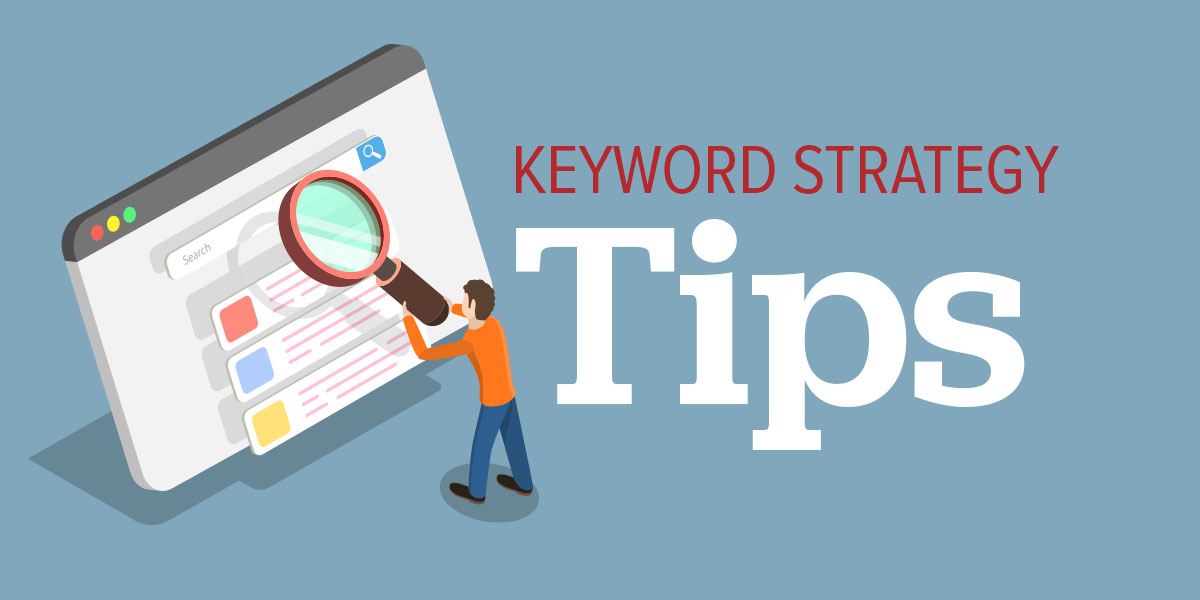
When you're looking for information online, chances are you first go to Google. Because of this, keywords are central to marketing and search engine optimization. If you want to get organic traffic to your website, you must create a keyword strategy.
Why You Need a Keyword Strategy
Keywords are words or phrases that users type into search engine queries. Keywords may include locations, types of organization, or whatever a customer might need. "Dentist in St. Paul," "pizza downtown Minneapolis," and "best video software" are a few examples.
Importance of Ranking On Page One
Many keywords are competitive. You need to take deliberate action to get your website to rank well. When people type in keywords, there may be hundreds of pages of results. As Neil Patel points out, 75% of search engine users don't click beyond the first page. Many people don't look below the top half of page one. That's why it's critical to get your website ranked as high as possible.
Help Guide Topics For Your Content Strategy
Keywords can also help to identify the topics that your audience cares about. Phrases with the highest keyword volume tells you what people are searching for. You can use this to inform your content strategy, such as blog posts, articles, videos, or podcasts.
Understand Searcher Intent
Keywords provide valuable insights into your audience's needs, interests, and problems. Aside from creating relevant content, you can use this to guide your organization. For example, keyword searches can give you ideas for new products or services to offer.
Create More Effective Funnels
The information gathered from keyword research can guide every stage of your funnel. This may include advertising, organic content, white papers, emails, and more.

Keyword Factors
When conducting keyword research, there are several main factors you need to study.
-
Search Volume. This is the number of searches for a particular keyword over a period of time, such as a month. Search volume is the most basic metric to see how popular a term is.
-
Relevance. You don't only want to use popular keywords. They also need to be relevant to your audience. Relevance is important for SEO as well as for connecting with website visitors. Google uses keyword relevance as a metric for ranking.
-
Build Authority. Google considers topical authority, which measures how trustworthy a site's content is. Along with relevance, this includes content quality and the authority of the author. Using relevant keywords plays a vital role in establishing your site as authoritative.
-
Competition. Another crucial factor for keywords is competition. Very popular keywords are also competitive. The most extreme examples would be "insurance," "hotels," and "restaurants." Google Keyword Planner ranks the competition for every keyword as Low, Medium, or High. Other keyword services use more intricate metrics, such as a scale between 1 and 100.
-
Current Position. You always want to know your current ranking for a keyword. If you only started using it, your ranking may be very low, such as on page 100 or worse. This allows you to track your progress and test what it takes to improve your position.
Understand Keyword Intent
When people type a keyword into a search engine, they are looking for a certain result. If you don't understand the intent of searchers, you'll target the wrong audience. If you have a high number of clicks but low conversions, this may mean that you're reaching users with a different intent.
There are several types of keyword intent. These can be broken into four categories. Each category works best with certain types of content.
-
Informational. The searcher is seeking information. Whether for a future purchase, a student doing research for a term paper, or someone who's only curious. Informational keywords are good for providing educational content about your topic. But, at this stage, people are researching and aren't ready to buy.
-
Navigational. People are searching for a specific website or page. They may include questions about the business, such as in "Where is the Four Oaks Shopping Mall?" or "What time does John's Diner open?" At this stage, you're want to inform customers who want to know more about your business.
-
Commercial. Users are shopping for a product or service and its features, pricing, and plans. Commercial keywords are meant for buyers. Service pages should contain these keywords, such as "buy," "pricing," or "deals for."
-
Transactional. This is the bottom of the funnel, when users complete a transaction or sign up for an offer. Transactional keywords are useful for call-to-action and conversion pages.
You always want to use keywords that match your customers' intent. Understanding keyword intent helps you design content for every stage of your funnel. The right keywords will differ depending on the stage of the consumer journey.
Content Clusters and Long Tail Keywords
Content or topic clusters consist of related topics. This content is commonly organized as a pillar page on the main topic with supporting pages for sub-topics. For example, if your main topic is "weight loss," you may have a long-form post on your site about this topic. This is a very competitive keyword and is difficult to rank for.
Then, you can create pages to address specific searches, such as "best exercises to lose belly fat" or "can blueberries help me lose weight?" These are long tail keywords and have low to medium competition. They can be questions, location-based, and very niche. The pages created around these keywords will support the pillar page and should be linked to that post. This will also benefit on-page SEO.
Keywords Play a Critical Role in Your Content Marketing
Keywords are one of the building blocks of a successful content marketing strategy. You should always refine your keywords based on the latest trends in your industry. Also, consult Analytics to find out what keywords drive the most traffic and conversions.
ArcStone can help your nonprofit develop an effective keyword strategy.
To learn more about our services, contact us.